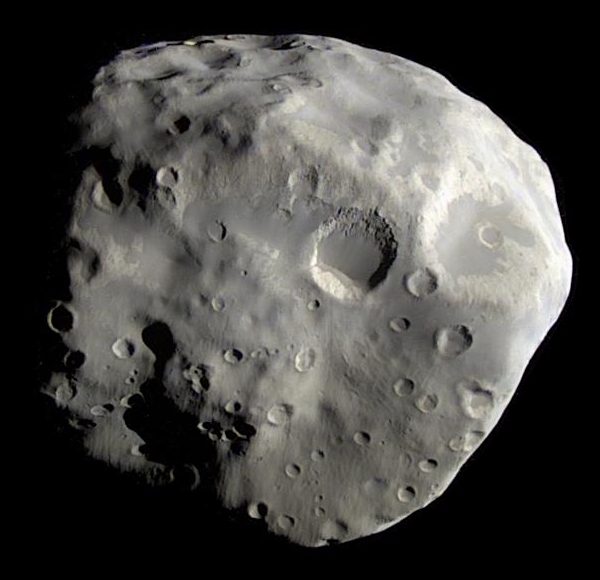Ficheru:PIA09813 Epimetheus S. polar region.jpg
PIA09813_Epimetheus_S._polar_region.jpg (600 × 580 píxels, tamañu de ficheru: 153 kB, triba MIME: image/jpeg)
Historial del ficheru
Calca nuna fecha/hora pa ver el ficheru como taba daquella.
| Data/Hora | Miniatura | Dimensiones | Usuariu | Comentariu | |
|---|---|---|---|---|---|
| actual | 22:49 5 xin 2013 |  | 600 × 580 (153 kB) | Antonsusi | Turn back ok, but the margin makes only a smaller, not optimised visible size of the object on pages. |
| 07:59 19 avi 2012 |  | 680 × 640 (222 kB) | WolfmanSF | Reverted to version as of 17:18, 11 January 2008 - Solar System objects are normally portrayed with north up, which means solar illumination comes from the side; also, there's no artistic advantage to eliminating the margin | |
| 02:39 9 xin 2011 |  | 580 × 600 (146 kB) | Antonsusi | cropped, turned upright | |
| 17:18 11 xin 2008 |  | 680 × 640 (222 kB) | WolfmanSF | replace with processed NASA image |
Usu del ficheru
La páxina siguiente usa esti ficheru:
Usu global del ficheru
Estes otres wikis usen esti ficheru:
- Usu en af.wikipedia.org
- Usu en als.wikipedia.org
- Usu en ar.wikipedia.org
- Usu en ary.wikipedia.org
- Usu en arz.wikipedia.org
- Usu en as.wikipedia.org
- Usu en be.wikipedia.org
- Usu en bh.wikipedia.org
- Usu en bs.wikipedia.org
- Usu en ca.wikipedia.org
- Usu en ckb.wikipedia.org
- Usu en de.wikipedia.org
- Usu en el.wikipedia.org
- Usu en en.wikipedia.org
- Cassini–Huygens
- Epimetheus (moon)
- Wikipedia:Selected anniversaries/December 18
- Timeline of discovery of Solar System planets and their moons
- Moons of Saturn
- List of Solar System objects by size
- Naming of moons
- List of natural satellites
- User:Dabomb87/Sandbox
- Talk:Solar System/Archive 7
- Wikipedia:Main Page history/2012 December 18
- December 1966
Ver más usos globales d'esti ficheru.



